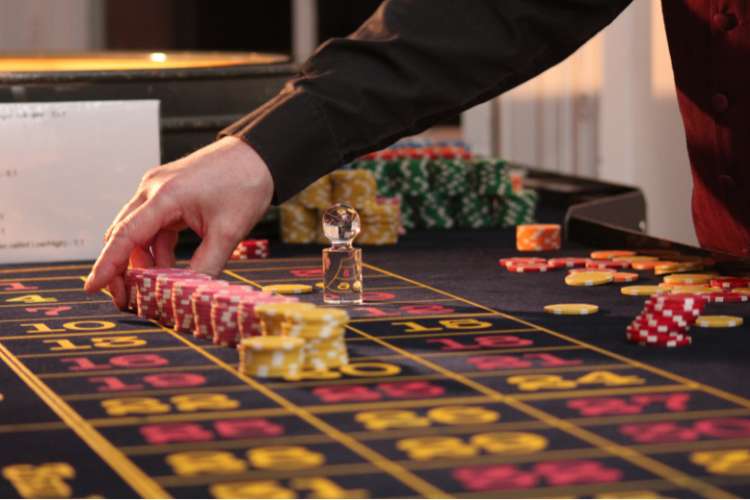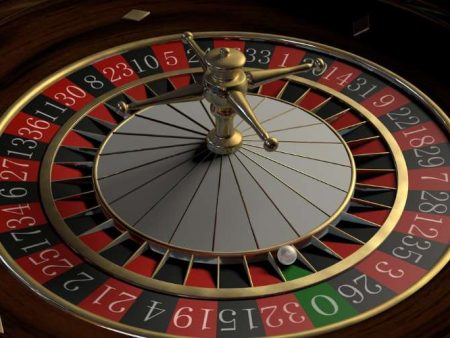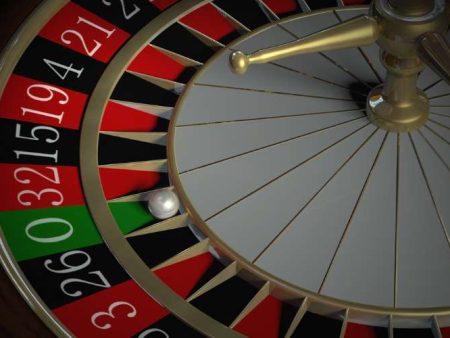
What's on this page
Roulette is a game of chance that has been a staple in casinos for centuries. It’s thrilling, exciting, and the simple spin of the wheel can offer a massive payout. But, for many players, the quest to maximize their winnings often leads to the use of progressive betting systems. The allure of winning big by progressively increasing bets after each loss seems appealing, but it comes with significant risks. In this article, I’m going to take you through the ins and outs of progressive betting in roulette, focusing on the Martingale strategy, its risks, and why you need to approach it (and other similar systems) with caution.
Whether you’re someone just starting out in roulette or an experienced player, understanding the financial, psychological, and mathematical aspects of progressive betting will help you play smarter. You’ll also discover how to protect your roulette bankroll and maintain a more enjoyable gaming experience. So, let’s dive in!
What is Progressive Betting in Roulette?
Progressive betting in roulette is a strategy where players adjust their bets after each round, typically increasing the wager following a loss. The idea is that you’ll eventually recover your losses with a win, all while profiting from that win as well. There are two main types of progressive betting: positive progression and negative progression.
- Positive Progression: In this system, you increase your bet after a win, aiming to capitalize on winning streaks.
- Negative Progression: This is the more popular form, where you increase your bet after a loss, with the idea of recovering your losses once you hit a win.
One of the most popular negative progression strategies is the Martingale strategy, where you double your bet after each loss. If you start with £10 and lose, your next bet will be £20, then £40, and so on. This continues until you win, at which point you go back to your original bet.
The problem is that while this strategy can work in the short term, it introduces a range of risks that can quickly spiral out of control. Let’s explore those risks further.
Why Progressive Betting Systems Can Be Appealing
It’s easy to see why so many players turn to progressive betting systems like the Martingale strategy. The thought of recouping losses with one win is certainly tempting, especially in a game like roulette, where the outcomes are completely random. The system promises a way to “beat” the house edge by increasing your bets after a loss, and many players believe it’s a foolproof method for turning a losing streak into a profitable one.
But the real allure lies in the psychological appeal. When you’re caught up in the excitement of a game, the idea of a “surefire” strategy can create an illusion of control. The positive reinforcement of hitting a win after a series of losses boosts your confidence and encourages you to increase your bets even further. As a result, you might end up thinking you’ve found the key to consistent success.
However, what many players fail to realize is that, despite its seemingly straightforward approach, progressive betting systems introduce a range of risks. These systems don’t change the underlying odds of roulette and can lead to disastrous losses if you’re not careful.
The Risks of Progressive Betting Systems
Let’s talk about the inherent risks of progressive betting, especially in the context of a popular system like the Martingale strategy.
- Risk of Large Losses: The most glaring risk is the potential for massive losses. In the Martingale strategy, each time you lose, you double your bet. A string of consecutive losses can quickly escalate your bets to astronomical amounts. What might have started as a £10 bet could quickly balloon into £160, £320, and beyond.
- Table Limits: One of the biggest problems with progressive betting systems is that most roulette tables have maximum bet limits. Even if you have a substantial bankroll, you may hit the table limit before you’re able to recover from your losses. This can trap you in a losing streak, unable to increase your bet further.
- Depleting Your Bankroll: Betting large amounts in a short period can drain your roulette bankroll. A few losses in a row can wipe out your funds before you even get close to breaking even. With each increase in your bet, your risk increases exponentially, and unless you have an unlimited bankroll, you’re gambling with money you might not be able to afford to lose.
These risks aren’t just financial—they’re psychological too. The emotional pressure of betting large amounts, the desire to recoup losses, and the stress of potentially losing it all can lead to poor decision-making and irrational betting behavior.
How Progressive Betting Systems Can Lead to a False Sense of Security
One of the biggest dangers of progressive betting systems is that they create a false sense of security. It’s easy to fall into the trap of thinking that by doubling your bet after each loss, you’re in control of the game. The reality is that roulette is a game of chance, and the outcomes of each spin are independent of previous spins.
With the Martingale strategy, for example, players believe that as long as they keep doubling their bet, they’re guaranteed to eventually win. This belief is a psychological trap, and it’s dangerous because it makes players ignore the fundamental truth that roulette outcomes are random, and there is no way to predict or control the result of each spin.
In truth, progressive betting doesn’t overcome the house edge—it only gives players the illusion of control. Even if you’ve had a few wins in a row, or your bets have increased substantially, the odds of winning on the next spin are still the same.
This false sense of security can lead to reckless betting and encourage players to risk more money than they should. Over time, this can quickly lead to a depleted roulette bankroll and emotional frustration.
Why Progressive Betting Does Not Overcome the House Edge
Let’s face it: no betting strategy, whether it’s the Martingale strategy or any other progressive system, can change the odds of the game. Roulette is inherently designed with a house edge that guarantees the casino a long-term advantage. This edge exists regardless of the betting system used, meaning that progressive betting strategies are ultimately doomed to fail in the long run.
In roulette, the house edge for European roulette is about 2.7% due to the single zero pocket on the wheel, and for American roulette, it’s about 5.26% due to the additional double zero pocket. This edge ensures that, on average, players will lose money over time, no matter how they bet.
The idea behind progressive betting is that you’ll eventually win and recover your losses, but this doesn’t account for the fact that the odds of the game are stacked against you. The longer you play, the more likely you are to lose money, no matter how well you manage your bets.
Alternatives to Progressive Betting: Smart Betting Strategies
Instead of relying on risky progressive betting systems, I encourage you to consider more sustainable and responsible strategies for roulette. The key to long-term enjoyment and success is to manage your bankroll wisely and bet conservatively. Here are some strategies to consider:
- Flat Betting: This is the simplest and safest betting strategy, where you bet the same amount on each spin, regardless of the outcome. Flat betting reduces the risk of depleting your roulette bankroll quickly and allows you to enjoy the game for a longer period of time.
- The D’Alembert System: A less aggressive alternative to the Martingale strategy, the D’Alembert system involves increasing your bet by one unit after a loss and decreasing it by one unit after a win. It’s a more gradual approach that avoids huge swings in your bankroll.
- Conservative Betting: If you’re looking to extend your time at the table without risking too much, consider betting smaller amounts that are a fraction of your total bankroll. This way, you can play for longer without putting too much pressure on your finances.
No matter what strategy you choose, always remember to play within your limits. The best way to enjoy roulette is to approach it as a fun game of chance and not a way to make quick profits.
Conclusion
Progressive betting systems like the Martingale strategy may seem like a surefire way to recover losses and win big, but the reality is that they come with significant risks. The potential for large losses, hitting table limits, and depleting your roulette bankroll are all very real dangers. While these systems offer the illusion of control, they do nothing to change the fundamental odds of the game.
Instead of relying on these risky strategies, focus on responsible gaming practices and smarter betting techniques. Flat betting, conservative wagering, and proper bankroll management will help you enjoy roulette without the stress and financial strain of progressive systems. Remember, roulette is a game of chance, and the best way to play is with a clear mind and a sustainable approach.
So, the next time you sit down to play roulette, make sure you’re playing responsibly, setting limits, and focusing on the fun of the game—without putting your bankroll at risk. Enjoy the spins, stay smart, and keep it fun!





